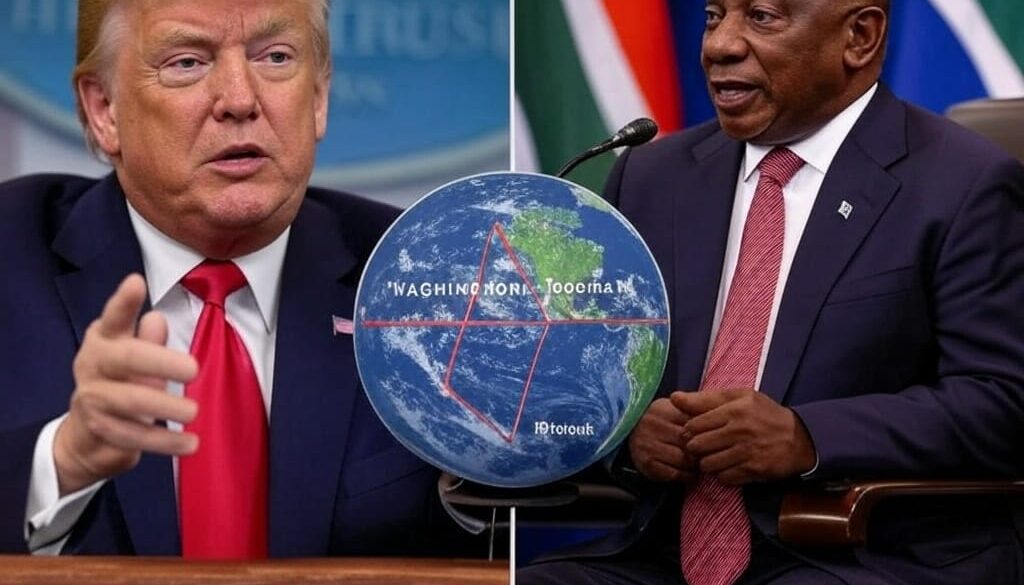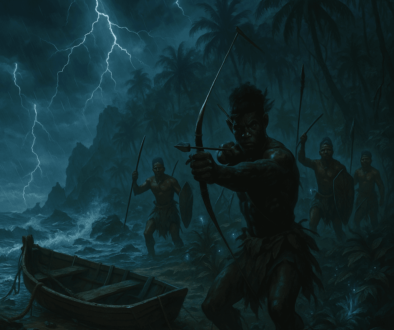Tensions Escalate Between US and South Africa Over “White Genocide” Claims
South African President Rejects Trump and Musk’s Narrative
The latest chapter in US-South Africa tensions unfolded this week as South African President Cyril Ramaphosa delivered a fiery rebuttal to claims of a “white genocide” in his country. In his weekly address, Ramaphosa dismissed accusations from US President Donald Trump and tech billionaire Elon Musk as a “false narrative,” urging South Africans to reject the notion that any racial or cultural group is being systematically targeted. While he avoided naming Trump and Musk directly, the subtext was unmistakable—a direct shot at the duo’s persistent allegations.
Trump has long claimed that South Africa’s government is persecuting its white minority, particularly Afrikaner farmers, by encouraging violent attacks and seizing their land. Last month, he escalated the rhetoric with an executive order slashing US funding to South Africa as a punitive measure. He even offered Afrikaners refugee status in the United States. Musk, a South African-born magnate and Trump’s vocal ally, doubled down over the weekend, accusing South African leaders of “actively promoting white genocide.” He pointed to a recent rally by the leftist Economic Freedom Fighters (EFF) party, where leaders sang the controversial apartheid-era song “Kill the Boer,” a term referring to white farmers in South Africa.

ALSO READ : Fishermen Storm Chile’s National Congress Over Fishing Bill Delay
The EFF Song Controversy: Violence or Symbolism?
The song, with its incendiary lyrics, has reignited global debate. US Secretary of State Marco Rubio weighed in, labeling it a “call to violence.” Critics argue it fuels racial tensions in a nation still scarred by its apartheid past. However, a 2022 South African court ruling found that the song does not constitute hate speech, citing a lack of evidence that it incites actual violence. The EFF defends it as a historical anti-apartheid anthem, not a literal call to arms. “It’s symbolic, not a blueprint,” an EFF spokesperson said recently.
Yet, the optics are hard to ignore. Farm attacks remain a grim reality in South Africa, with a reported spike in violent incidents over the past decade. While these crimes don’t exclusively target white farmers—Black farmworkers are often victims too—the narrative of a “white genocide” has gained traction among Trump, Musk, and their supporters. Is it grounded in fact, or is it a distortion amplified by misinformation? To unpack this, we turn to expert analysis.
Expert Insight: No Genocide, But Real Concerns
To dive deeper, spoke on First Post Fumani Majozi, a Johannesburg-based author and political analyst, live on First Post. “Mr. Majozi, welcome,” they began. “Trump and his allies claim a white genocide is being encouraged in South Africa. Given the country’s crime statistics, how credible is this?”
“There’s no genocide in South Africa—white or otherwise,” Majozi replied firmly. “To frame it that way is totally misleading. That said, farm attacks are a serious issue. Years back, James Myburgh, editor of Politicsweb, compiled data showing a concerning number of murders targeting farmers. But calling it a genocide? That’s wrong. There’s no evidence of a coordinated campaign against the white population.”
Majozi’s stance aligns with broader data. South Africa’s crime rate is notoriously high—murders topped 27,000 in 2023 alone—but no official statistics support the idea of a racially motivated purge. Still, the farm murder rate, estimated at over 50 per 100,000 people annually, far exceeds the national average, fueling fear and debate.
ALSO READ : China’s New Weapon: A Deep-Sea Cable Cutter That’s Shaking the World!
Historical Context and the Misinformation Factor
So why does this narrative persist? “South Africa’s history plays a massive role,” Majozi explained. “Apartheid left deep wounds, and some politicians exploit that. Figures like Julius Malema of the EFF push divisive rhetoric, blaming the white minority—less than 8% of the population—for economic woes. That’s not helpful. Thirty years into democracy, we should be building unity, not singing songs like ‘Kill the Boer.’ They might’ve made sense pre-1994, but now? They alienate people.”
Misinformation amplifies the problem. In the digital age, Musk’s X posts and Trump’s statements ricochet globally, often stripped of context. “Social media can distort reality,” Majozi warned. “It’s a megaphone for half-truths, and that’s dangerous in a country still wrestling with its past.”
Diplomatic Fallout: A New US Ambassador and a Trade Reset?
The stakes rose this week with Trump’s nomination of Leo Brent Bozell, a conservative media critic and pro-Israel commentator, as the new US ambassador to South Africa. The move comes days after the US expelled South Africa’s ambassador, Ibrahim Rasool, over his critical remarks about Trump’s administration. Rasool returned to Pretoria to a hero’s welcome, defiantly stating, “I have no regrets.”
Bozell’s appointment signals Trump’s hardline stance, especially given South Africa’s decision to accuse Israel of genocide in Gaza at the International Court of Justice—a move that irked Washington. “How will this impact relations?” they asked Majozi.
“President Ramaphosa wants to work with the US,” he said. “He’s open to trade talks with Trump’s team, which is positive. I hope Bozell shares that spirit. There’s a chance to reset ties battered by these disputes—trade could be the bridge. But both sides will need to compromise.”
ALSO READ : Indian Stock Markets Are Buzzing: A Comeback or a Mirage?
Navigating a Global Tightrope
With US-South Africa relations at a boiling point, the road ahead is fraught. Trump’s America operates differently from past administrations, wielding economic leverage and refugee offers as diplomatic weapons. South Africa, meanwhile, balances its domestic challenges—crime, unemployment, racial divides—with an assertive foreign policy that’s drawn ire from the West.
As Majozi put it, “We’re not Ukraine, compromising territorial integrity for peace. South Africa won’t bow to external pressure. But we can’t ignore the need for dialogue.” Whether Bozell’s tenure sparks reconciliation or further friction remains to be seen.





OpenAI’s New Ghibli Art Feature: Turn Photos into Studio Ghibli Magic (2025)
March 27, 2025 @ 9:20 am
[…] Tensions Escalate Between US and South Africa Over “White Genocide” Claims […]